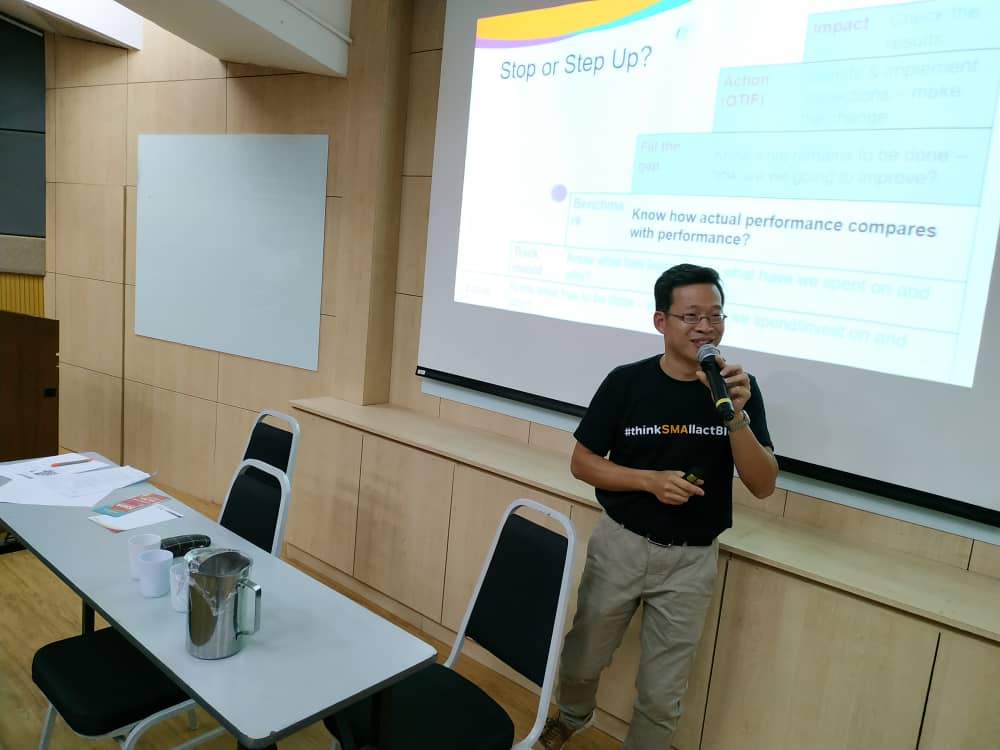KUALA LUMPUR, August 23 — Ahead of Merdeka, patient groups have urged the government to look at health care as a lucrative investment instead of a burden.
As Malaysia celebrates 62 years of independence on August 31, patients say health should be a top priority as it’s fundamental in determining the nation’s productivity.
“With the allocation given, I applaud what the government has done so far, but we cannot be satisfied because there is so much more work to be done to ensure that it’s equitable and fair,” said Edmund Lim, the founder of WeCare Journey, a nonprofit dedicated to the treatment of spinal muscular atrophy (SMA).
“I’m disappointed that many diseases which are smaller in number with high needs are pushed away and de-prioritised and left behind to suffer significant unmet needs and even forced to sacrifice their lives.
“We have cases of rare diseases in the country. The number of patients is not big, thus they are easily get ignored. Take spinal muscular atrophy (SMA) as example. It is a rare disease and therefore, the voice of the patients and their family are not being heard,” he told CodeBlue.
According to Lim — the treatment for SMA, a neuromuscular disease that removes one’s ability to move, walk, eat or breathe without assistance — is not available in Malaysia because it is said to be expensive.
“I admit it is costly, but let’s not forget there are many other developing countries that buy and are using the drug to treat SMA patients. So I don’t understand why it’s so difficult for it to get an approval and being used here.”
WeCare Journey founder Edmund Lim
Lim, who has a nine-year-old son with SMA, is hoping people will stop seeing treatment of a disease as a form of liability to the country.
“The cost of treatment is offset by the gains we make in patients and caregivers who can be productive, and the reduced burden on the health and other welfare systems. There is a big payback with treating properly and on time,” he pointed out.
“When an illness gets cured or treated, the parents and families’ caregiving time is reduced. When this happens, parents and families can re-focus. They can start going back to work, thus increasing the country’s productivity,” Lim said.
Cancer groups called for a shift from prioritising treatment to focusing on preventive care instead, saying that health care should be more proactive, rather than “fighting fires”.
“One example of a proactive approach in cancer is focusing on early diagnosis and prevention. A US-based study revealed that by diagnosing cancer in its early stages, the country can save up to US$26 billion a year,” National Cancer Society of Malaysia (NCSM) president Dr Saunthari Somasundaram told CodeBlue.
“We also need to focus on better patient navigation in the public health care system. This includes better integration of primary, secondary, and tertiary healthcare, because patients are almost often ‘lost’ or ‘drop out’ in between,” she added.
Dr Saunthari called for a better allocation of resources.
“This means investing in the infrastructure and foundation of the health care system. This way, all of health care, and not just one particular field, can benefit.”
Pakatan Harapan previously increased the Health Ministry’s allocation by 7.8 per cent to RM29 billion for the 2019 Budget from RM27 billion. But lawmakers like Klang MP Charles Santiago from the DAP have called for health spending to rise to 6 per cent of Malaysia’s gross domestic product (GDP) from the current 4.5 per cent that comprises 2.3 per cent and 2.2 per cent from the government and private sectors respectively.
It’s also important to address the need for a thorough review of the health care system, said Sew Boon Lui from Society for Cancer Advocacy and Awareness Kuching (SCAN).
The review, said Sew, will help the government to come out with a Budget allocation that can be fully utilised.
“It’s easy to just propose or appeal for higher percentage allocation for cancer healthcare budget. But it has to be substantiated by factual data and the impact on economy and productivity when cancer strikes a patient, a family and a community.
“Health Ministry should have a more integrated database and cancer registry to collect and analyse data from all hospitals and medical centres on a timely basis. For example, statistics we see that is presented by oncologist now are up till 2011, which is eight years behind time,” added the advanced breast cancer survivor.
“We need to ask more questions about it so that we can understand the situation. Then only we can come out with proper plan and money allocation,” added the advanced breast cancer survivor.
Editor’s note: Corrections were made to more accurately reflect interviewees’ comments.








